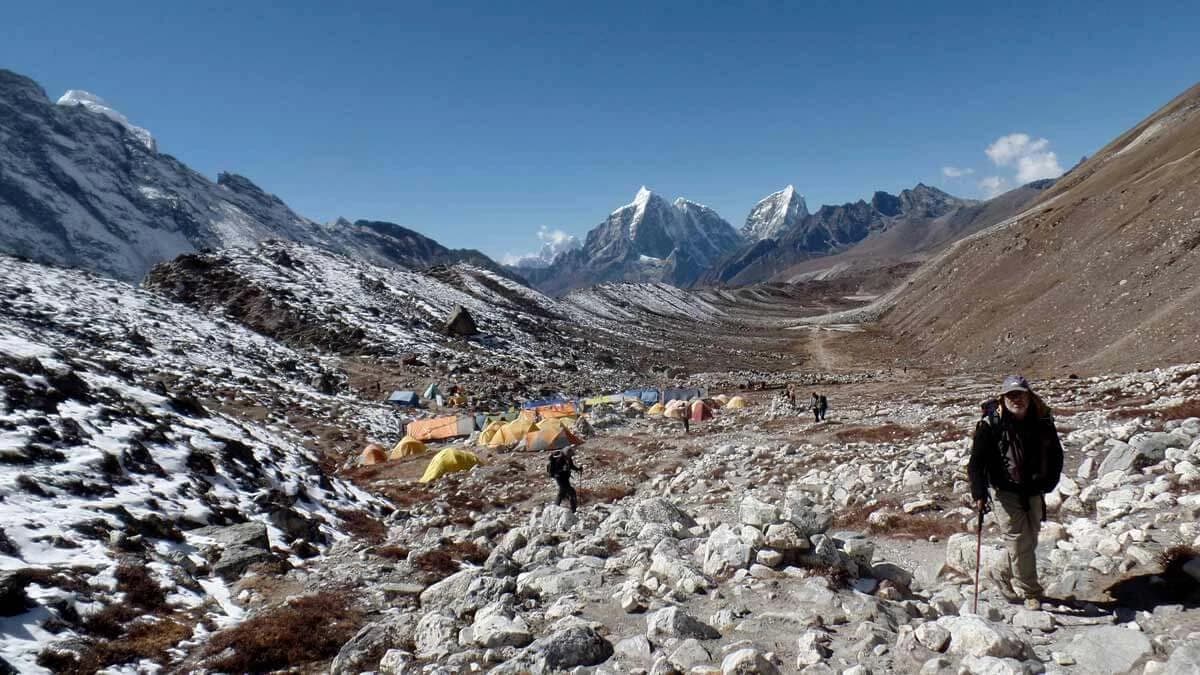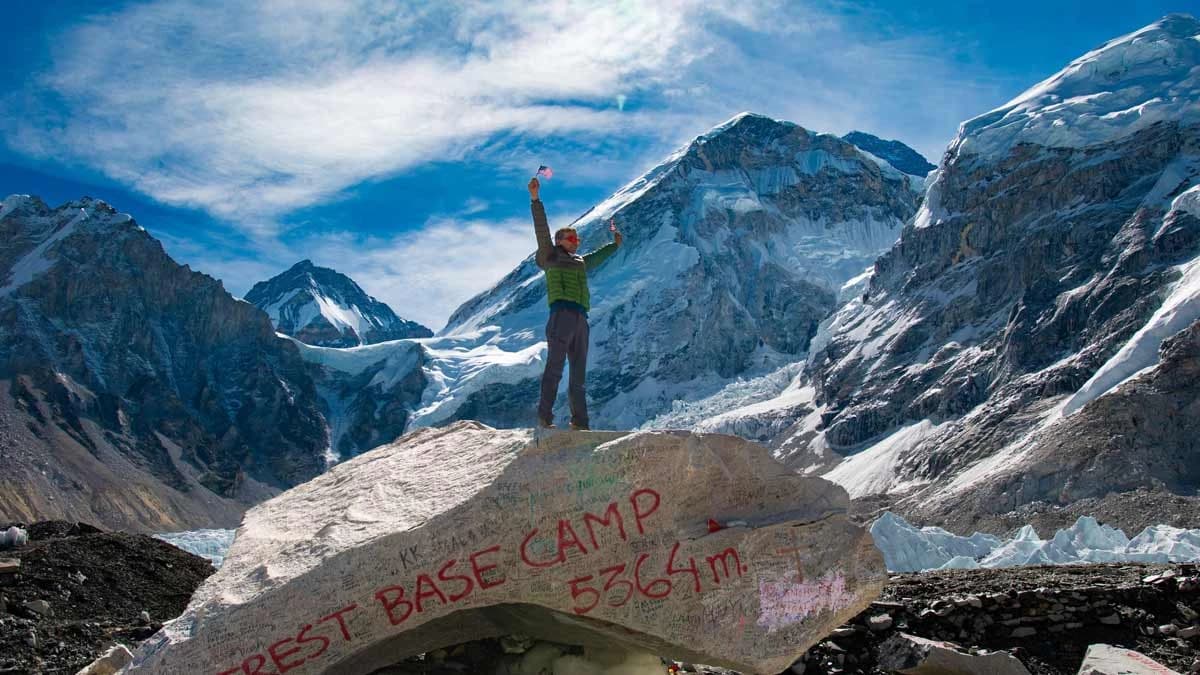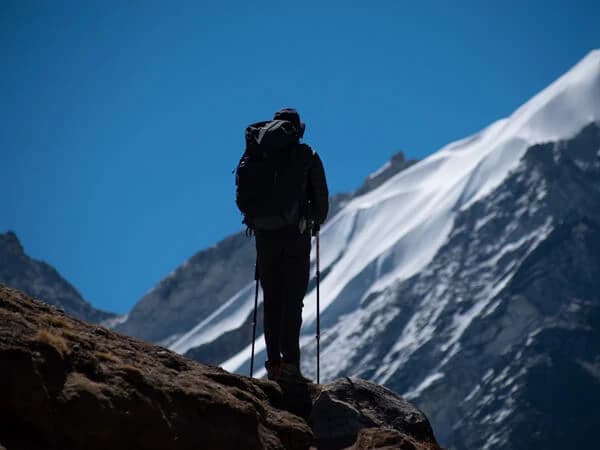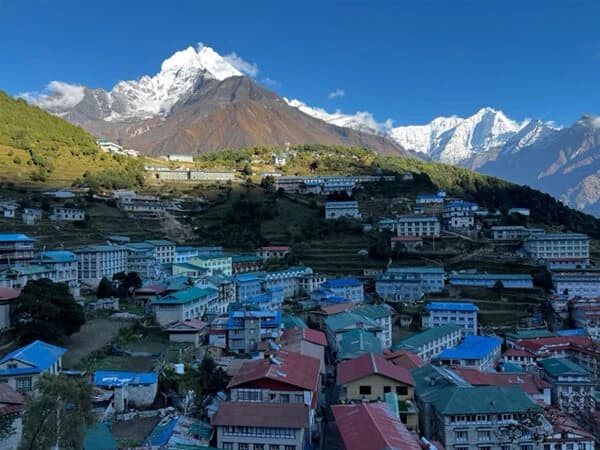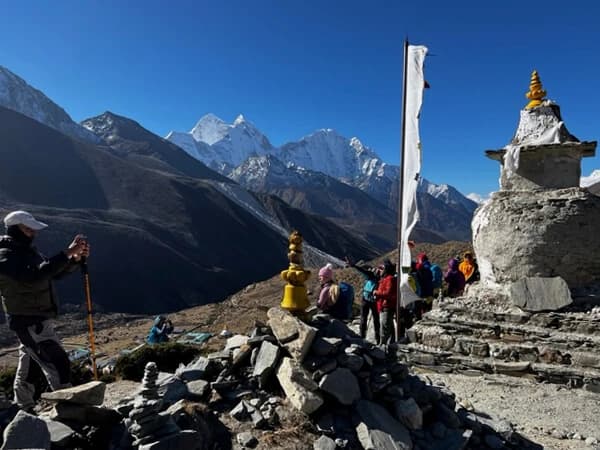The Everest Base Camp with Island Peak Climbing adventure by Global Eco Trails is the ultimate journey for trekkers who want an ideal Himalayan quest in the high-altitude terrain of Nepal. This expertly crafted expedition combines the world-famous Everest Base Camp Trek trails with the exhilarating ascent of Island Peak (6,189m) by offering the perfect balance of high-altitude trekking and introductory mountaineering in Nepal’s Everest region.
Never tried mountaineering but is dreaming of it??? Confused on which beginner friendly peak to choose?? Or want full on adventure on Everest region but gigantic mountain allures you??? This 17-days fully guided Everest Base Camp and Island Peak climbing package is designed for adventure seekers ready to challenge themselves, push beyond classic trekking routes and experience the Himalayas in a deeper rewarding way.
Your journey begins with a scenic mountain flight to Lukla, followed by a trek into Sagarmatha National Park- a UNESCO World Natural Heritage Site where the trail takes you through iconic Sherpa villages such as Namche Bazaar, Tengboche, Dingboche, Lobuche, Gorak Shep, Kalapathar, Everst Base Camp-Jongma La pass to Chhukung and Island Peak Base Camp. Watching dramatic glaciers, ancient monasteries and towering Himalayan giants such as Mount Everest, Lhotse, Nuptse, Ama Dablam and Pumori, reach the base of Everest and move towards Island Peak to achieve your goal.
Global Eco Trails follows a smart acclimatization-focused route. Climb Kala Patthar (5,545m) for the best sunrise view of Mount Everest and cross the spectacular Kongma La Pass (5,435m) the highest and most adventurous of the Everest Three Passes. This route not only offers breathtaking glacial landscapes and fewer crowds but also prepares your body and mind for the ultimate goal: Island Peak Summit.
After reaching Everest Base Camp (5,364m) and standing beneath the legendary Khumbu Icefall, the adventure continues toward Island Peak (Imja Tse). From Chhukung, you’ll hike to Island Peak Base Camp, where our experienced mountain leaders provide hands-on training in climbing techniques, rope work, crampon use, and safety procedures. Summit day begins early; around 2:00 AM to ensure the best conditions for a safe and successful ascent.
Reaching the summit of Island Peak rewards you with close-range, panoramic views of the Everest massif, making this one of the most satisfying trekking peak climbs in Nepal. It’s not just a summit; it’s a milestone in your Himalayan journey.
Why Choose Global Eco Trails?
Global Eco Trails is a government-registered trekking and Adventure company specializing in Everest trekking and Island Peak climbing. We focus on safety, proper acclimatization in the itinerary, and personalized service.
Everest Base Camp with Island Peak Climbing Trip Highlights
- Combined Everest Base Camp Trek and Island Peak Climbing adventure
- Scenic flight to Lukla
- Sunrise from Kala Patthar & 360° views from Kongma La Pass
- Sherpa culture, monasteries, mani walls & prayer flags
- Rich Himalayan wildlife and alpine flora
- Tented camping experience at Island Peak Base Camp
- Panoramic views of Everest, Lhotse, Nuptse, Ama Dablam, Thamserku & more
Everest Base Camp with Island Peak Climbing Food & Accommodation
During the trek, you’ll stay in comfortable teahouses with warm dining halls and a wide variety of meals including Nepali, Indian, Continental, and vegetarian options. Up to Chhukung, accommodation remains in cozy lodges.
At Island Peak Base Camp, Global Eco Trails provides a fully supported tented camp with spacious sleeping tents, dining tent, nutritious meals prepared by our crew, and all necessary camping equipment; ensuring comfort even at high altitude.
Who is EBC with Island Peak climb for?
You might be wondering what sort of people head for mountain climbing. It’s normal people like you and me who are attracted to nature, mountains, courage, leap of faith, finding solace in the journey or a little bit freak who wants to tick the bucket list. Everest Base Camp with Island Peak Climbing expedition is ideal if you:
- Have good fitness and can hike 5-7 hours per day
- Want to experience your first Himalayan peak above 6,000m
- Are comfortable with basic teahouse and tented accommodation
- Seek a professionally guided, safe, and rewarding adventure
- Not to forget, previous high-altitude trekking experience is recommended but not mandatory.
Book Everest Base Camp with Island Peak Climbing Today
With Global Eco Trails, you don’t just trek; you climb higher, travel smarter, and experience the Himalayas with confidence. Contact our experts today and book earlier to grab the fully guided package at affordable price with flexible departure. Join one of the best Everest Base Camp with Island Peak Climbing and live your dream now.

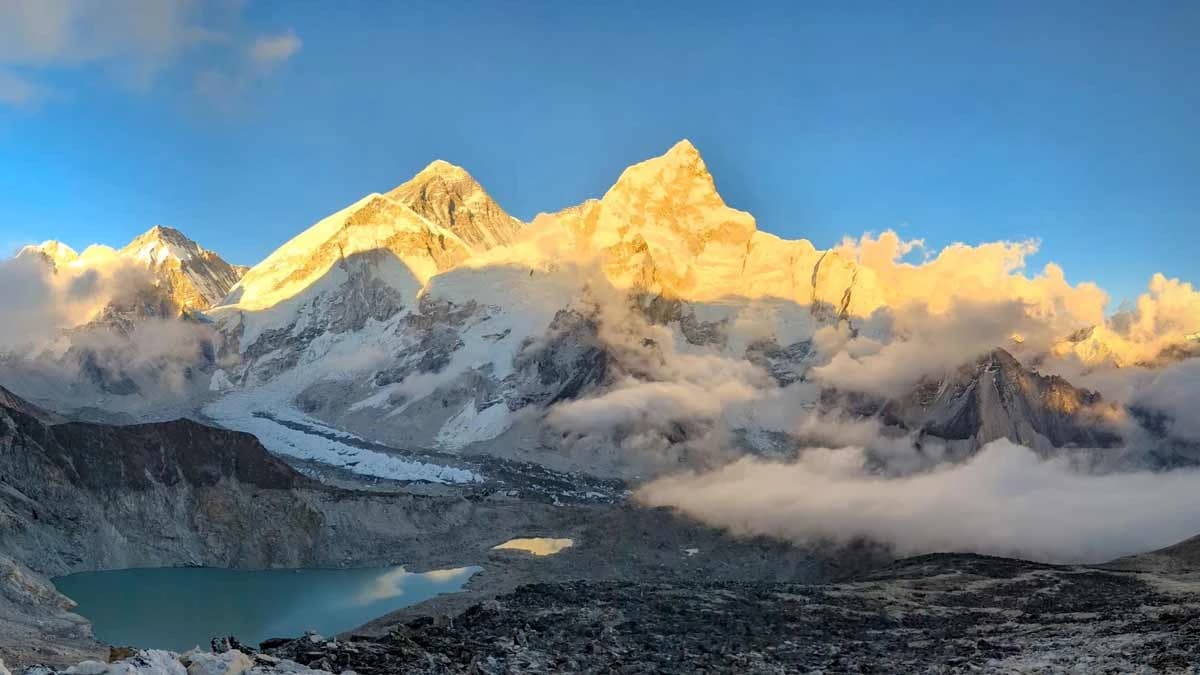





.webp&w=1200&q=75&dpl=dpl_5gKNvSHECaREL4EUJ2JEgQ1zNZRX)
